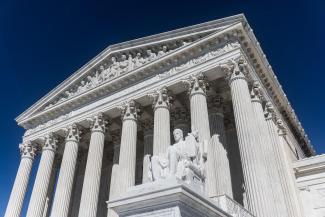The courts have a lot of friends. How many of them care about the climate?

As the national conversation following the West Virginia v. Environmental Protection Agency (EPA) verdict showed, climate change continues to be a focal point of this generation. And that conversation is happening both inside and outside the courtroom in the form of amicus briefs.








